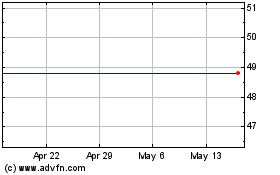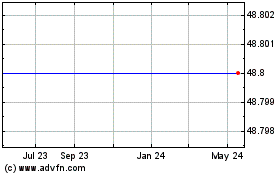ComEd reaches significant progress on
multi-year goal in 2021; has committed to conserving more than
11,000 acres to pollinator habitats by 2025
ComEd today joined the University of Illinois Chicago (UIC) in
announcing it has reached a new milestone in pollinator habitat
conservation, with nearly 4,000 acres of powerline corridor land
now deemed pollinator habitats. Efforts to conserve pollinator
habitats are part of ComEd’s pledge to preserve 11,700 acres of
utility owned land by 2025 for habitats that support the monarch
butterfly, which is at risk of extinction.
The announcement comes in time for National Pollinator Week,
which runs June 20-26, and is designed to raise awareness about the
critical role that pollinators play in preserving our
ecosystems.
"At ComEd, we have an important role to play in growing green
space and conserving wildlife habitats across the communities we
are proud to serve,” said ComEd CEO Gil C. Quiniones. “With
nearly 4,000 acres of land serving as pollinator habitats and
ambitious plans to expand on this in the years ahead, ComEd is
helping deliver a more climate-friendly environment for local
wildlife, while promoting quality of life for 9 million people who
live in northern Illinois.”
In the last 20 years, the population of monarch butterflies has
declined significantly, putting the species at risk of extinction.
A primary cause of this decline is the loss of habitat containing
native flowering plants that butterflies need for food and
breeding, including milkweed species.
In December 2020, ComEd made its pledge to protect pollinator
land when it applied for a Certificate of Inclusion within the
nationwide Monarch Butterfly Candidate Conservation Agreement with
Assurances (CCAA), administered by UIC. The Monarch CCAA is a
formal agreement between the U.S. Fish and Wildlife Service and
non-federal property owners and land managers to engage in efforts
to protect the monarch butterfly, which is currently being
considered for listing under the Endangered Species Act. Two years
into the pledge, ComEd is on pace to meet its goal.
“ComEd has long been a leader in the utility industry with their
environmental stewardship programs, some dating back decades,”
said Iris Caldwell, program manager at the UIC Energy Resources
Center. “The CCAA provides a great mechanism to recognize
ComEd’s commitments that directly benefit pollinator species like
the monarch butterfly and also showcase their management practices
for others in the energy and transportation sectors to learn
from.”
Beginning in 2017, UIC partnered with more than 45 energy
companies and transportation agencies to develop the first
nationwide CCAA. The agreement, which was approved by the U.S. Fish
and Wildlife Service in April 2020, is over the next two decades
expected to grow to include millions of acres of land managed
nationally by energy companies and departments of transportation
across the United States. In 2021, CCAA program partners managed a
total of 692,557 acres of habitat and collected habitat monitoring
data at 755 sites across the U.S.
“Ensuring a bright future for monarchs requires the
participation and dedication of partners across society and across
the continent,” said Lori Nordstrom, assistant regional director
for Ecological Services in the Midwest Region of the U.S. Fish and
Wildlife Service. “We at the U.S. Fish and Wildlife Service
applaud ComEd’s commitment to conserving habitat and saving a place
for monarchs and other pollinators for future generations.”
Beyond the CCAA and its prairie habitat designation program,
ComEd has made other investments to support pollinators, including
hosting honeybees on ComEd Rights of Way (ROW) and planting over 2
million milkweed seeds – the only plants that can be eaten by
monarch butterfly caterpillars. This year, ComEd has committed to
planting 1 million additional milkweed seeds and continuing its
ongoing efforts to plant native prairie plants across the region.
These habitat conservation efforts benefit numerous other species
as well, such as birds, bees and other butterflies, many of which
are also declining in population.
Additionally, for the past decade, ComEd has operated the
Powering Communities Green Region grants – a competitive grant
program working to fund community driven sustainability and
ecosystem improvement projects. Since launching the program, ComEd
has deployed 113 Green Region grants totaling nearly $900,000 to
help expand and preserve pollinator habitats.
“Thanks to ComEd’s leadership on regional pollinator protection
as well as sustainability investments, the City of Prospect Heights
has expanded efforts to now manage 40 acres of pollinator habitat
locally,” said Prospect Heights Natural Resources Commissioner
Dana Sievertson. “The Green Region grants provided by ComEd
have helped us launch a significant expansion of prairie space,
including a new Boardwalk and Pollinator Park, that are now enjoyed
by thousands of residents and are working to help threatened
pollinator species to thrive.”
Investments to protect pollinator habitats are also helping to
launch new research by UIC environmental scientists. A recently
published report demonstrates the role of the powerline corridors
in enhancing insect pollinator and grassland bird biodiversity in
suburban Chicagoland. Data collected from ComEd’s own prairie
powerline corridors found that these areas support 2.4 times more
species of butterflies and moths than backyards, and more than 60
times the number of native plant species found in lawn-managed
corridors.
About ComEd: Commonwealth Edison Company
(ComEd) is a unit of Chicago-based Exelon Corporation (NASDAQ:
EXC), the nation’s leading competitive energy provider, with
approximately 10 million customers. ComEd provides service to
approximately 4 million customers across northern Illinois, or 70
percent of the state’s population. For more information visit
ComEd.com, and connect with the company on Facebook, Twitter,
Instagram and YouTube.
About UIC: Located in the heart of one
of the world’s great cities, the University of Illinois Chicago is
the city’s largest university and only public research institution.
Its 16 academic colleges serve more than 34,000 undergraduate,
graduate and professional students. UIC is recognized as one of the
most ethnically rich and culturally diverse campuses in the nation,
a leader in providing access to underrepresented students. With one
of the largest colleges of medicine in the nation, and colleges of
dentistry, pharmacy, public health, nursing, social work, and
applied health sciences, UIC is the state’s principal educator of
health professionals, and its academic health center is a major
health care provider to underserved communities. UIC students
become professionals in fields ranging from law and business to
engineering to education, liberal arts and sciences, urban
planning, law and social work, as well as architecture, design and
the arts. UIC is an integral part of the educational,
technological, and cultural fabric of one of the world’s greatest
cities.
View source
version on businesswire.com: https://www.businesswire.com/news/home/20220622005706/en/
ComEd Media Relations 312-394-3500
Exelon (NYSE:EXC)
Historical Stock Chart
From Jan 2025 to Feb 2025

Exelon (NYSE:EXC)
Historical Stock Chart
From Feb 2024 to Feb 2025
